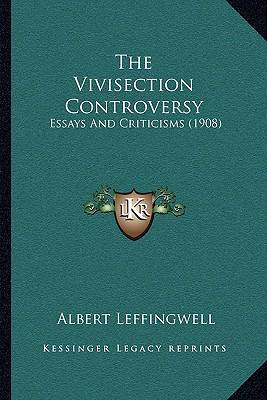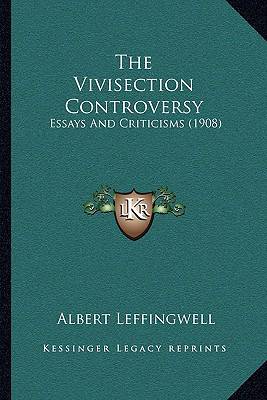
- Afhalen na 1 uur in een winkel met voorraad
- Gratis thuislevering in België vanaf € 30
- Ruim aanbod met 7 miljoen producten
- Afhalen na 1 uur in een winkel met voorraad
- Gratis thuislevering in België vanaf € 30
- Ruim aanbod met 7 miljoen producten
Zoeken
€ 40,95
+ 81 punten
Uitvoering
Omschrijving
The Vivisection Controversy: Essays And Criticisms is a book written by Albert Leffingwell and published in 1908. The book is a collection of essays and criticisms on the topic of vivisection, which is the practice of performing experiments on live animals for scientific research.The book is divided into two parts. The first part contains essays that defend vivisection as a necessary and valuable tool for advancing medical knowledge. These essays argue that vivisection has led to important discoveries in medicine and that without it, many medical breakthroughs would not have been possible.The second part of the book contains criticisms of vivisection. These essays argue that vivisection is cruel and unnecessary, and that alternative methods of research should be used instead. The authors of these essays argue that animals should not be subjected to painful experiments and that the results obtained from vivisection are often unreliable.Overall, The Vivisection Controversy: Essays And Criticisms is an important historical document that sheds light on the debate surrounding vivisection in the early 20th century. It provides a range of perspectives on the issue and is a valuable resource for anyone interested in the history of animal rights and medical research.This scarce antiquarian book is a facsimile reprint of the old original and may contain some imperfections such as library marks and notations. Because we believe this work is culturally important, we have made it available as part of our commitment for protecting, preserving, and promoting the world's literature in affordable, high quality, modern editions, that are true to their original work.
Specificaties
Betrokkenen
- Auteur(s):
- Uitgeverij:
Inhoud
- Aantal bladzijden:
- 262
- Taal:
- Engels
Eigenschappen
- Productcode (EAN):
- 9781166177478
- Verschijningsdatum:
- 10/09/2010
- Uitvoering:
- Paperback
- Formaat:
- Trade paperback (VS)
- Afmetingen:
- 152 mm x 229 mm
- Gewicht:
- 353 g

Alleen bij Standaard Boekhandel
+ 81 punten op je klantenkaart van Standaard Boekhandel
Beoordelingen
We publiceren alleen reviews die voldoen aan de voorwaarden voor reviews. Bekijk onze voorwaarden voor reviews.











